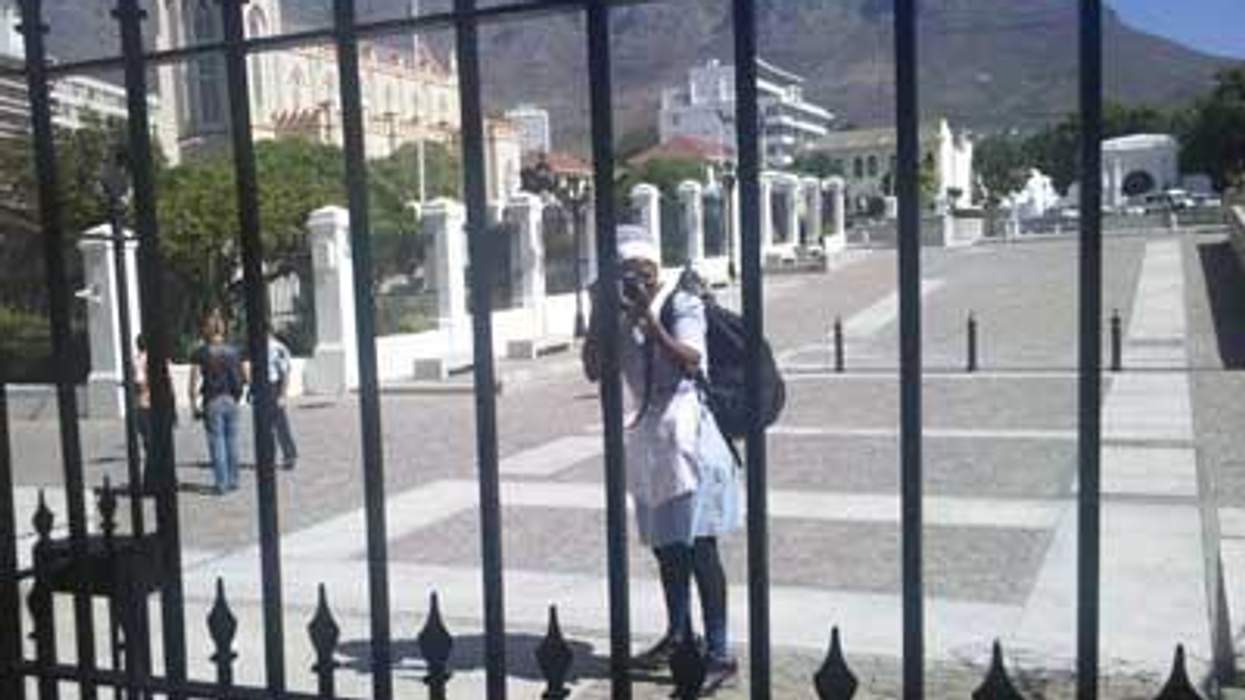Lesbian artist Zanele Muholi had just returned to Cape Town on April 26 from Seoul, Korea where her documentary Difficult Love was shown at the 14th International Woman's Film Festival, to find that her Vredehoek apartment had been burglarized. This was no ordinary burglary.
After cutting through bars, the thief entered Muholi's apartment through a bathroom window and stole more than 20 external hard drives, flash drives and SD cards consisting of years of projects that had consumed the life of the famed South African.
Little else was stolen; other expensive equipment, large and small items that most thieves would have relished for an easy sell, were left behind and so she believes her work may have been specifically targeted, possibly a hate crime.
Stopping Muholi, a controversial lesbian activist, who had amassed thousands of hours of footage and photographs of lesbian life in South Africa, would be coup for any homophobe. What has been lost is much more than her celebrated exhibitions and publications. Muholi had captured scenes that were never shown publicly, some which she intended to use for a future documentary and the rest to archive for historic value. All of Muholi's work from 2008 to date is now gone as is the product of documenting almost every hate crime case where lesbians were the victims of so called "curative rape," endemic in South Africa.
The theft comes at a time when the South African traditional leaders are formally, through a parliamentary committee, questioning and threatening the sexual orientation and gender identity protections in the South African Constitution. Muholi's work makes an excellent target for a statement.
She had traveled Africa to capture critical events in the lives of LGBTQI people, including never seen footage of the tombstone consecration for murdered Ugandan gay legend, David Kato. Despite her international travel schedule, she ensured that she attended and recorded almost every one of the 40 postponements in the trial of 12 accused murderers who had stoned 19-year-old lesbian Zoliswa Nkonyana to death. This invaluable footage of court scenes, interviews and protests is now all missing.
When I was in Cape Town attending the historic parliamentary protests and Department of Justice meetings on the forming of the "corrective rape" task force, I had the extraordinary experience of being interviewed and followed by Muholi. She arrived at Parliament for the meeting, in costume, dressed in the uniform of an Apartheid-era domestic servant. The consummate artist and activist, she protested as she worked to record protests. All of what she recorded that day too is gone.
The pain of the loss to Muholi and the women's community in South Africa is exacerbated by the fact that South African media has failed to report and bring much needed publicity about this horrendous crime.
As noted by Autostraddle, "The loss of these often unrepresented voices whom Muholi has worked so hard to document and share with the world is disturbing enough, but the fact that few mainstream media outlets have deemed the story unworthy of covering means that even the loss of these women's stories is going without notice."
The media was very quick to report that the South African Minster of Arts and Culture had walked out of an exhibit by Muholi where a picture of a lesbian couple was exhibited.
Muholi often speaks of her art as an effective means of creating real change by inspiring people to personally recognize and "respect the humanity of the 'others' who experience brutal violence." She says, "In this capacity, art can succeed where politics sometimes fail."
Muholi told me "I am in mourning." She is appealing to anyone who comes across her hard drives to return them intact. If returned intact by the perpetrator, she promises to drop all charges. Anyone with information can contact me, Melanie Nathan, at Nathan@privatecourts.com. In the meantime, we are all the victims of this devastating crime as we suffer the loss of irretrievable work and what it offered by way of healing to a society ailing with homophobia.
MELANIE NATHAN is CEO of Private Courts Inc., a mediation and human rights advocacy firm specializing in LGBTI equality and international human rights. She is a blogger at www.oblogdeeoblogda.wordpress.com, and coproducer of Gay U.S.A. the Movie.




































































Charlie Kirk DID say stoning gay people was the 'perfect law' — and these other heinous quotes